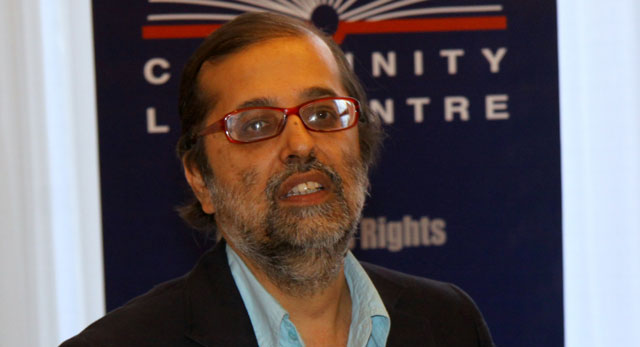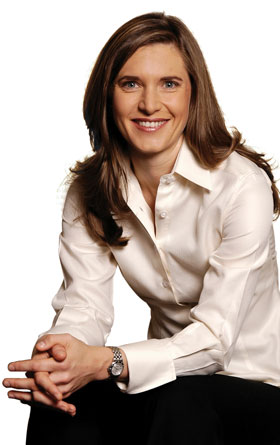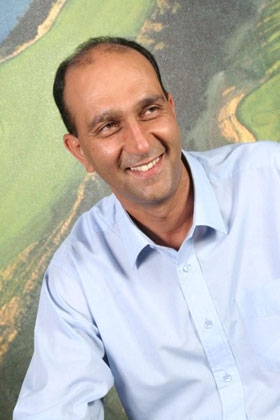
Free-to-air broadcaster e.tv has slammed a confidential deal struck between the SABC and MultiChoice that prohibits the public broadcaster from offering any of its channels over a television platform that uses encryption technology.
E.tv described the move as “directly contradicting government policy”, giving MultiChoice subsidiary M-Net a “free ride” in digital terrestrial television.
This is the latest shot fired in a war between e.tv and MultiChoice over the introduction of digital TV in South Africa.
E.tv wants government to include an encryption system, known as “conditional access”, in set-top boxes that the state plans to subsidise for up to 5m South African homes.
MultiChoice opposes conditional access in the subsidised boxes, saying it will amount to unfair competition.
Although former communications minister Dina Pule prevaricated on the issue shortly before she was fired by president Jacob Zuma in July, the use of conditional access remains government policy.
Communications minister Yunus Carrim is trying to mediate in the dispute, but it appears neither side is prepared to give ground. The impasse is a direct threat to mobile operators and Internet service providers, which need access to the spectrum the broadcasters will release through migration to digital TV, to offer next-generation broadband services.
Asked why the SABC agreed to the clauses prohibiting carriage of its channels over platforms that use conditional access, the broadcaster said simply: “This is a matter between two parties, and we will not be drawn to discuss this matter in the public space.”

But Bronwyn Keene-Young, chief operating officer of e.tv parent Sabido Investments, said MultiChoice’s deal with the SABC gave M-Net “the right to free-ride on the SABC channels when selling the M-Net digital terrestrial television set-top box”.
All South Africans wanting to receive terrestrial television after analogue broadcasts are switched off — the deadline for this is June 2015 — will have to buy set-top boxes.
Keene-Young accused MultiChoice of having an ulterior motive in opposing conditional access for terrestrial television.
“Isn’t the real reason that MultiChoice so vigorously opposes set-top box control the fact that if the free-to-air signals are not encrypted, M-Net can ride on the free-to-air channels (without paying compensation) to promote its own set-top box?”
She also accused MultiChoice of contradicting government policy in the SABC agreement.
MultiChoice South Africa Group CEO Imtiaz Patel said there is nothing untoward about the agreement with the SABC and that e.tv is attempting to get the government to subsidise its plans to launch a pay-TV service to compete with DStv.
“We have no problem with competition and have always welcomed it,” Patel said. “We only have a problem with e.tv and others potentially choosing to get a free ride from government.”
In terms of the deal between MultiChoice and the SABC, the public broadcaster has agreed to supply DStv with a 24-hour news channel and a 24-hour entertainment channel for a total payment of R553-million over five years. The agreement’s most contentious clauses are the ones in which the SABC agreed it will not carry any of its free-to-air channels over a terrestrial platform that includes conditional access.
Conditional access allows broadcasters to switch off non-paying customers and is an essential element of a pay-TV service. Patel argued it would increase the cost of the set-top box dramatically when all that was needed was a simple “digital converter” that cost R350 or less. E.tv wanted taxpayers to subsidise its entry into the pay-TV market, he said.
But Keene-Young rubbished Patel’s claim. “E.tv has stated time and again that it has no intention of using the digital terrestrial television platform to launch pay TV,” she said.
“Our formal undertaking, which we have made several times in Imtiaz’s presence, is that neither e.tv, e.sat tv or any entity in the Sabido Group, will offer pay TV on the digital terrestrial free-to-air platform, so the concerns about the box subsidy financing pay-TV players are misplaced.”

Keene-Young alleged that the “real reason” MultiChoice was opposed to conditional access was that it “intends to use the free-to-air broadcasters — SABC and e.tv — to drive its terrestrial M-Net set-top box”.
“If the free-to-air broadcasting platform is encrypted, MultiChoice will have to seek the agreement of the free-to-air broadcasters to be on its digital terrestrial platform,” she said.
“Without encryption, the M-Net digital set-top box will simply be able to pick up the signals of the free-to-air broadcasters … and M-Net will have a free ride to grow its currently negligible (about 50 000 subscribers) terrestrial M-Net households off the back of the SABC and e.tv without any compensation.”
But Patel said e.tv had put forward “spurious arguments” about why there should be conditional access in set-top boxes — among them that the SABC would be able to switch off viewers who didn’t pay licence fees, something he said government would never enforce, and to stop the sale of decoders across the border, something also unlikely to happen.
“We don’t have a problem with e.tv launching its own pay service,” Patel said. “What we have a problem with are the spurious reasons being provided to get government to pay … for a private enterprise to have a free ride into its biggest input cost.”
But Keene-Young said these issues formed part of government policy, one which was “subject to extensive consultation with all interested parties for a lengthy period”. She reiterated that neither e.tv nor any of its sister companies planned to use free-to-air boxes to offer pay TV.
Keene-Young said costs that access control added to the box were “minimal compared to the benefits”.
Patel argued, too, that there was “no country in the world” that had used taxpayers’ money to introduce conditional access in digital terrestrial television, and that South Africa should follow international norms.
Keene-Young argued that South Africa had “unique challenges” and should look at “unique solutions” to those.
Loren Braithwaite-Kabosha, CEO of the South African Communications Forum (SACF), an industry group the members of which include a number of established and prospective set-top box manufacturers, warned that if conditional access was removed, these manufacturers would have to redesign their solutions, which would affect the hardware and software design and result in delays.
“The effort and resources spent on the original design will not be recovered. More resources will be needed for redesign, testing and qualification of the new solution and further delays will result,” she said.
“Stock of set-top box components that have already been purchased (mainly chip sets with long lead times) by our chapter members will further inflict incalculable financial losses.”
Braithwaite-Kabosha said that if the control system was removed from the tender, SACF members estimated that these changes would “require at least two months for manufacturers to participate in a meaningful manner and to submit appropriate pricing”. — (c) 2013 NewsCentral Media
- This piece was first carried in the Sunday Times




